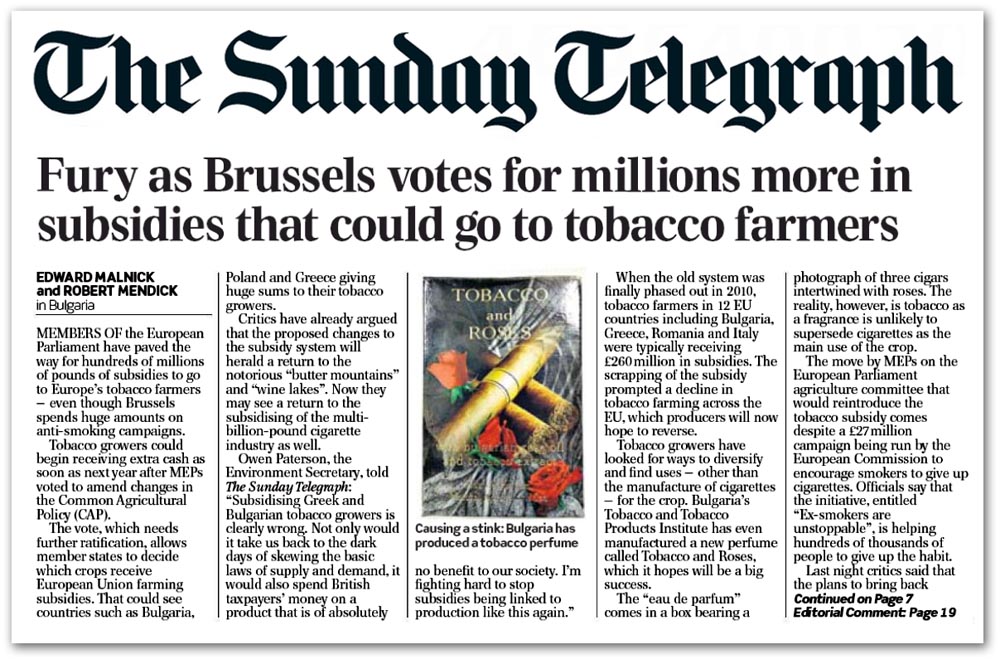However, this is a carry-over story from last week, when Andrew Gilligan wrongly asserted that the European Parliament agriculture committee had "passed" reform provisions for the CAP – one of which was the restoration of tobacco subsidies.
This latter claim is being attributed to Owen Paterson, who is concerned that there is pressure in the Council of Ministers to reinstate production subsidies, reversing the so-called MacSharry reforms. He fears that, with the European Parliament offers amendments to like effect, a combination of Parliament and Council could overturn the Commission's proposals, and set the CAP back two decades.
He thus condemns the amendments as "disappointing, retrograde, backward-looking" and in some respects "ludicrous", but it is a very far cry from there, to claim, as Malnick and Mendick have done this week, that MEPs have "voted to amend changes in the Common Agricultural Policy".
To claim this is simply wrong, but that two weeks running the Sunday Telegraph has published exactly the same erroneous claim tells you a great deal about its journalists, their research capabilities and their concern for the truth.
What the journalists have done is mistake the procedural role of the European Parliament agricultural committee, where on behalf of the Conference of Presidents, it has approved the tabling of amendments to be considered and voted on by the full Parliament, in plenary session – probably some time in March.
There is a huge difference between this procedural function and the approval process. The committee itself has no powers to approve or reject amendments tabled. It simply acts as a processing body, to present them to the Plenary for a full vote. It is the full parliament that then approves or otherwise the amendments and, as we pointed out last week, there are still many hurdles before any amendment becomes policy.
In fact, most amendments are rejected at the first reading. As here, they are usually grandstanding by MEPs for domestic purposes, to show their constituents that they have been active on their behalf. Each amendment is worth a press release, with the hope of favourable headlines back home.
With these proposals, though, there is an additional hurdle, the EU budget. With agreement stillevading EU leaders, that is a considerable problem. If the funding is not there, the entire proposals will have to be withdrawn and rewritten by the European Commission.
That deal has to be reached by Thursday, so we will know pretty soon whether there is another crisis in the offing.
In the meantime, the Sunday Telegraph insists on parading its ignorance, adding to its errors with aneditorial telling us that it is "puzzling" that "the EU's representatives should even be considering reintroducing financial support for the growing of tobacco, which was withdrawn in 2004".
Bizarrely, the editorial ventures that, "It is possible that the MEPs who voted in favour of the amendment were not fully aware of what they were doing", when in fact no MEPs have yet had an opportunity to vote on the amendment. The people who are not aware of what they are doing, it seems, are Telegraph journalists.
COMMENT THREAD
